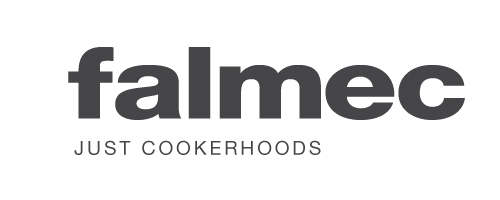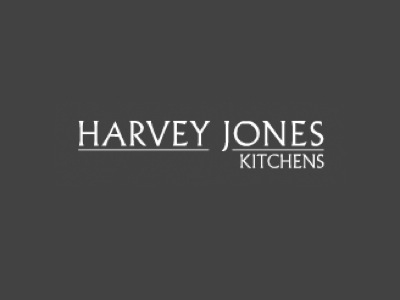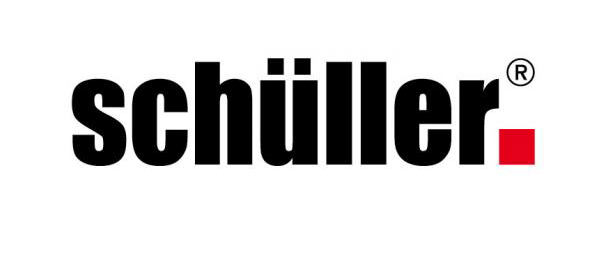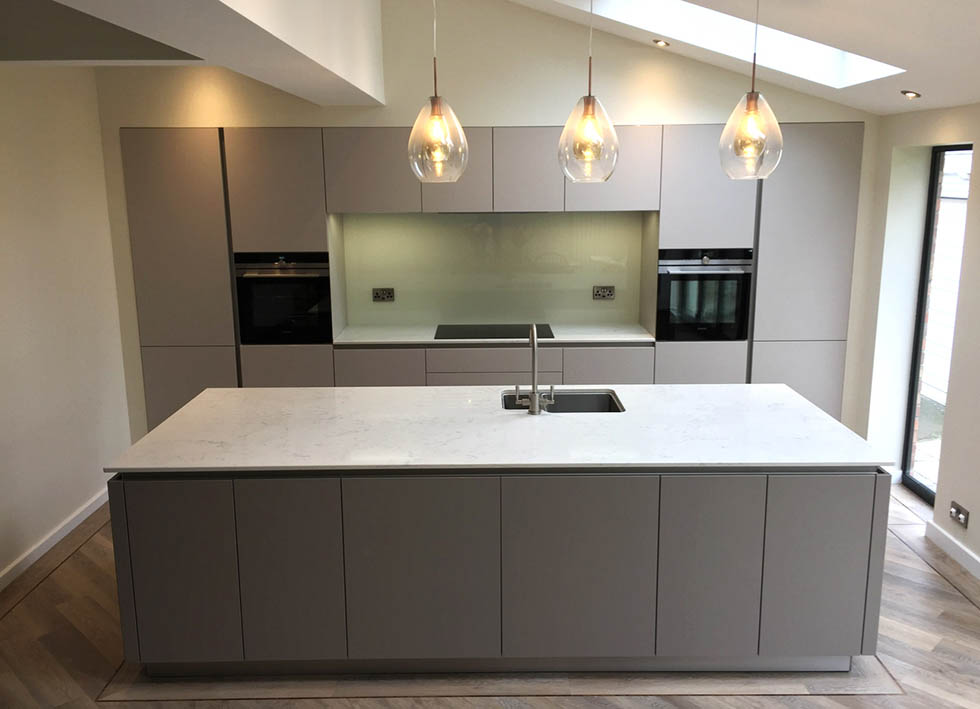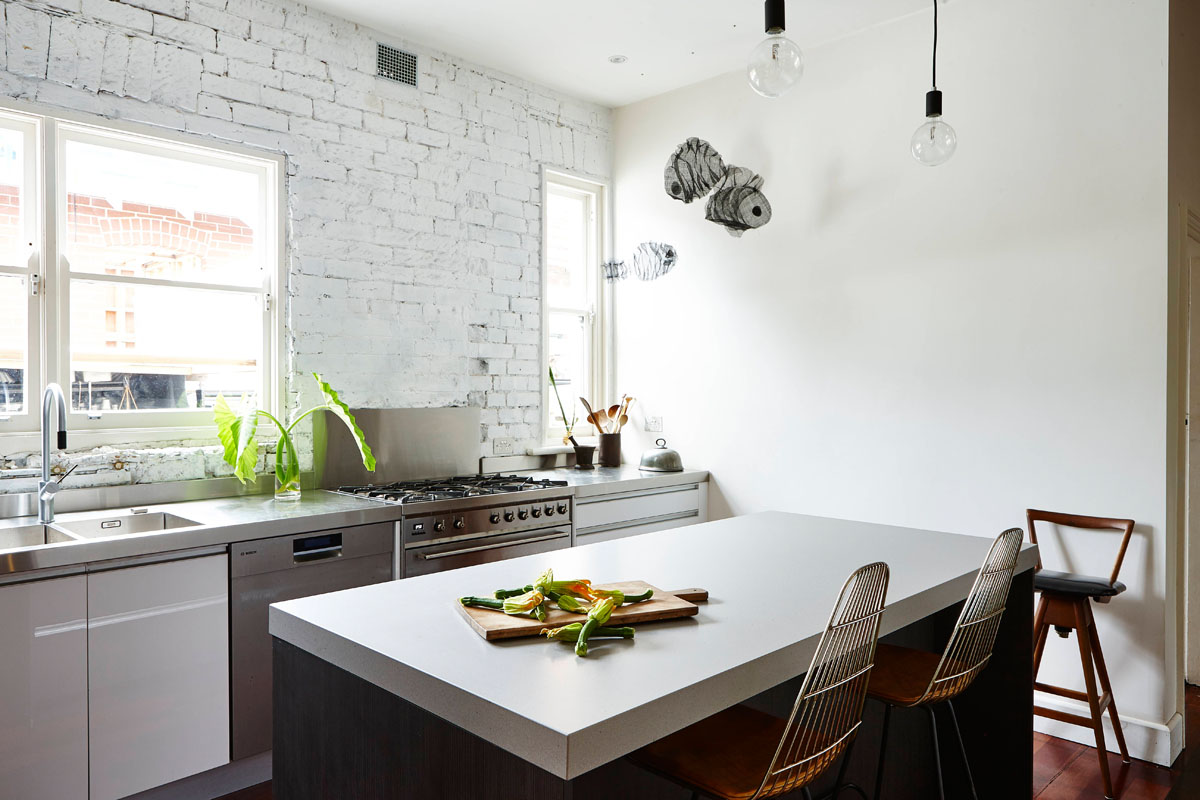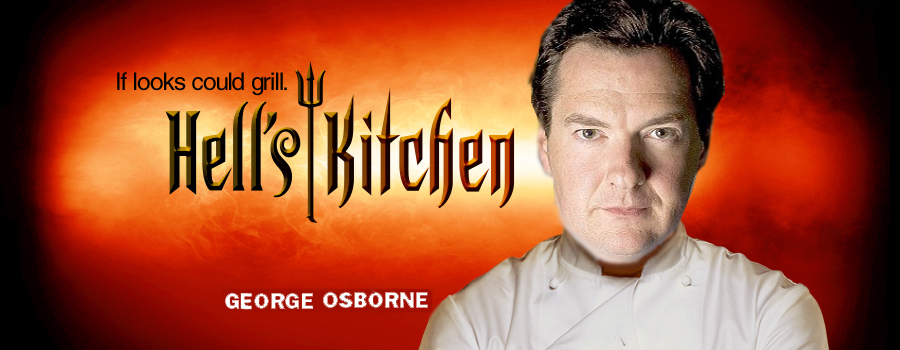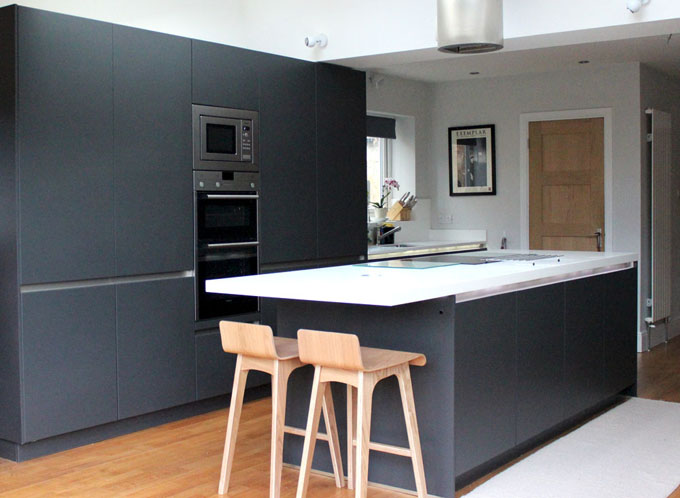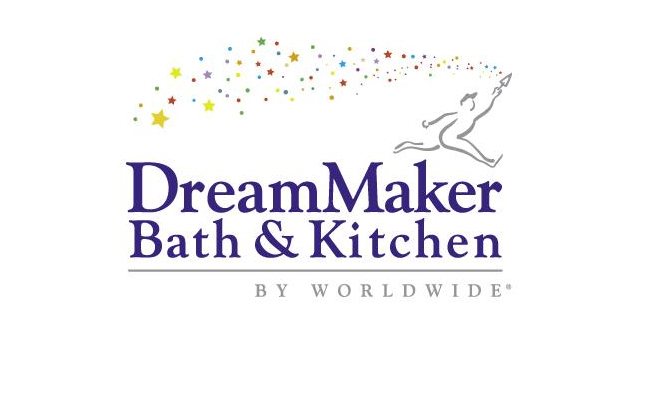With the bigger brands accused of back pedalling to cut costs, innovative Italian cooker hood company Falmec has seized its chance to snatch market share. Tim Wallace talks to Nigel Jacobs, managing director of UK importer Euroline
Until recently, Italian cooker hood specialist Falmec was little more than a bit part player among a host of bigger, more established competitors. But thanks to a number of recent technical developments, and a progressive strategy targeting the independents, the company insists those same competitors are now looking nervously over their shoulders.
"We're becoming an irritant," smiles Nigel Jacobs, managing director of UK importer Euroline, as he shows me round the company's impressive factory facility near Venice. "The market is flat so we're taking market share. Elica was the cooker hood of choice but we're starting to take some of their core business. We're also beginning to give Siemens a run for their money. We have a much tighter marketing strategy with our product. We don't sell online or via distribution. We are very much customer specific."
Jacobs insists that whereas other hood manufacturers have "gone quiet on development" in a tightening market, Falmec has forged ahead with a number of innovations including its patented noise reduction system (NRS). More recently, it has also introduced the E.ion System which uses natural air purification processes to remove dust, pollen, pollution and bacteria. The first models in the series, the Lumiere and Zephiro were released in the UK in June.
Founded in 1981, Falmec now has subsidiaries in Germany, Poland, Spain, Brazil and the USA and its eight designer collections feature more than 300 models. Sitting down to chat further, Jacobs is happy to not only expand on Euroline's plans for the brand in the UK, but to offer a frank assessment of the wider retail landscape...
What is Falmec's core focus in the UK?
The mid to premium kitchen specialist. We don't get involved in e-commerce. We've also ventured into a partnership with Homebase. They have a number of high net worth locations and are capable of selling higher value products. From the 10 concept stores we went into at the back end of 2011, they're now rolling that out into another 40 stores.
How much of a concern is that to your independent network?
From a retail perspective, they shouldn't worry because Homebase don't get preferential terms. Secondly they don't have access to every single product we make available, and lastly it's a third party recommendation. There are people who see Hombebase a bit like John Lewis; they see a strength in the brand. They've seen it in Homebase and then buy it in an independent store.
How's business for the retailers you deal with?
Interestingly our customers have had record levels of quotations since the beginning of the year, the footfall hasn't slowed. But the problem is there's a huge gap between quotes and orders. There are clearly deals being done where projects are making no money at all. I'm hearing of certain projects that are so heavily discounted it's just being done on cash flow. So what's the attraction of
Falmec to a prospective dealer?
There's a constant development of product relevant to the market. We don't just produce nice-looking hoods, there's a functionality to it, such as our noise reduction and ionisation systems and the higher percentage removal of odours.
But won't the likes of Elica etc be saying the same?
No because we're the first people to bring out these systems. We have a patent. Secondly we have a very different philosophy, we supply the kitchen specialist, we don't get involved in distribution. So we're not diluting the market with different routes.
So if I Googled Falmec I wouldn't be able to buy it on the web?
The only way you'd find it is if a retailer has it on their site but we don't encourage them to show price points. You may find an Italian site where you can buy it but then there's no warranty, and Falmec is even trying to stop that. It protects the independent retailer's interests and it also protects the brand. The frustrating thing though is we're very strict about how we operate that part of the business but we still find retailers buying from other sources that clearly have a much wider distribution of their product, and then moan about the margin they make on the product.
What the difference between a good retailer and a bad one?
The good ones are proactive, they change displays and have their own in-house marketing. They have a core set of products that they don't veer away from and they'll know the supply chain for that product. But some retailers are becoming like butterflies, hopping from product to product in a bid to find something with bigger margin. A lot of kitchen retailers are constantly changing their furniture supplier; you can't keep going through bad ones. Maybe one or two, but there has to be a reason why they keep changing and we tend to avoid those customers because we see nothing but grief. When we take on a new independent retailer it takes us at least a year to 18 months before we start to understand how each other works. They all have different ways of doing things. We're on both EQ and Smart and yet some of the dealers using those systems still fax us the quotes. It's about changing people's habits. There's a lot of inefficiency out in the market.
Are many appliance brands distributed too widely?
Yes, there's no real control, you get a very mixed message. And using Eurocucina as an example, you see a lot of prototype products which suggests manufacturers are unsure of what they're trying to do. It's like going fishing with a multitude of rods and baits and seeing what bites.
Do retailers know enough about the appliances they stock?
Sometimes the consumer knows more about the product than the retailer selling it. We try to give our dealers an induction process to explain why products have been developed and what the benefits are because we're finding we're often called in to sort out products that have been wrongly installed or incorrectly supplied. That gives the consumer the opportunity not to pay the balance and then the retailer has cash flow issues. It becomes very messy and we end up having to sweep up.
Are you having to bail out struggling retailers?
We're very careful with the credit limits we set. We don't let people buy too much product. When you're having to bail out retailers it's a drain on your own cash flow. We've supported retailers by giving extended credit because money is tight. But equally, if we don't see an improvement in that business in three or four months, we'll gradually ease back.
Are there any retailers that particularly impress you?
We deal with people like Neil Lerner in London's Finchley Road. He's got a very smart business and has his own PR firm. Not many retailers do that; a lot of good designs aren't seen. You need to inspire people. It's not all about price. Another interesting company is Krieder in Tunbridge Wells. They're very progressive, constantly looking for innovation. Also Extreme Design in Gerrards Cross and Ascot are doing very well. They have trainee designers who will spend two or three years with a mentor. A senior designer will have an assistant. We come in and run induction courses. They're one of the companies willing to send their staff for product evaluation.
Any other companies out there who are impressing you?
V-Zug is an interesting product and I also have a lot of time for Siemens and Westye with Sub Zero and Wolff. On the furniture side, Hacker is a good product. They innovate but they're discreet about it, they play it down. There's almost a bit of a mystique about them, they have this iconic status. They've probably got 200 of the best dealers in the UK.
What are your impressions of the retail landscape in the UK?
The likes of Currys and Comet are dinosaurs, that's been proved with Comet being sold by Kesa. The experience hasn't changed in 10 to 15 years. When you walk in there's no welcome, no making people feel special. The format of walking round large draughty buildings looking at a variety of products that aren't particularly well displayed gives very little incentive to buy. Look at washing machines, you often see 12 or 15 in a line with various price points. How do you make a selection from that? And the staff have very limited information.
So should they be offloading stores?
I read recently that if you came into the UK for the first time and wanted nationwide coverage you'd need roughly 70 stores, which would give you access to 80% of the population. So when you see a company like Comet with 200 stores it's clearly top heavy. Some must be competing with each other, plus they have the internet sites.
But at the same time, aren't many of the DIY sheds upping their game?
I certainly think Homebase are onto something. They've researched the market and identified a gap because of the likes of MFI and Moben disappearing. They're doing it in manageable blocks. When times were good a retailer could afford to put themselves into a specific part of the market but now you have to offer a wider portfolio - not five or 10 suppliers but probably three. The companies that do that are doing better. They accept footfall is down.
Why do you think brands like Scholtes failed in the UK?
I suspect they were looking to have a much faster uptake on that product than they achieved. They probably spent a chunk of money and then couldn't see the return they wanted. It was a shame for us because even though Scholtes is a French business it was portrayed as Italian. There are very few mid to premium Italian brands. The built-in appliance market is dominated by the German kitchen appliance brands. So it was great to have Scholtes because it was being waved with the Italian flag, and people might have looked at other Italian brands. They didn't get in with the right quality dealers. Look how the market is changing, we talk about premium, but there's also luxury. Sub Zero and Wolff and Gaggenau are luxury brands, so for Scholtes to come in at that level was very difficult in a two or three year period.
Clearly the UK market isn't a priority for every appliance brand..
Sometimes I can't see why the UK is so important. The route to market is so fragmented before you get to the end consumer. Gaggenau has the right strategy because they only supply to high-end kitchen specialists and to be a Gaggenau dealer you have to jump through hoops, but it's the right way. It's not on the internet, it's not sold through Curry's...
But Gaggenau is a premium product...
It is but you can still apply that mentality if you had a mid-market product. You don't have to go into all these multi channels. I don't understand why Neff, for example, sits in B&Q or Homebase. You have a situation where some of Siemens' products are only available to kitchen specialists and others are available run-of-the-mill. I don't understand that, it just confuses people. Fundamentally it comes from the same factory, it may just have a few different knobs.
Are we being swamped by too much Chinese product?
Yes, the UK appliance business sucks up far more Far Eastern product than any other European companies I'm aware of. I'm sure quality will get better but the biggest issue is they're not good innovators so they'll always be playing catch up.
But they can offer a similar product for a cheaper price...
That's not a concern, it's about how you bring it to market and support it and they can never do that from 5,000 miles away. They will always copy, that's what they do. Companies are now sourcing product closer to the UK. It depends on product sector but for companies who are into volume there will always be a market in China. Where they suffer is they've got to become innovators and that doesn't sit with their business model.
The above interview was given to KBB Review
